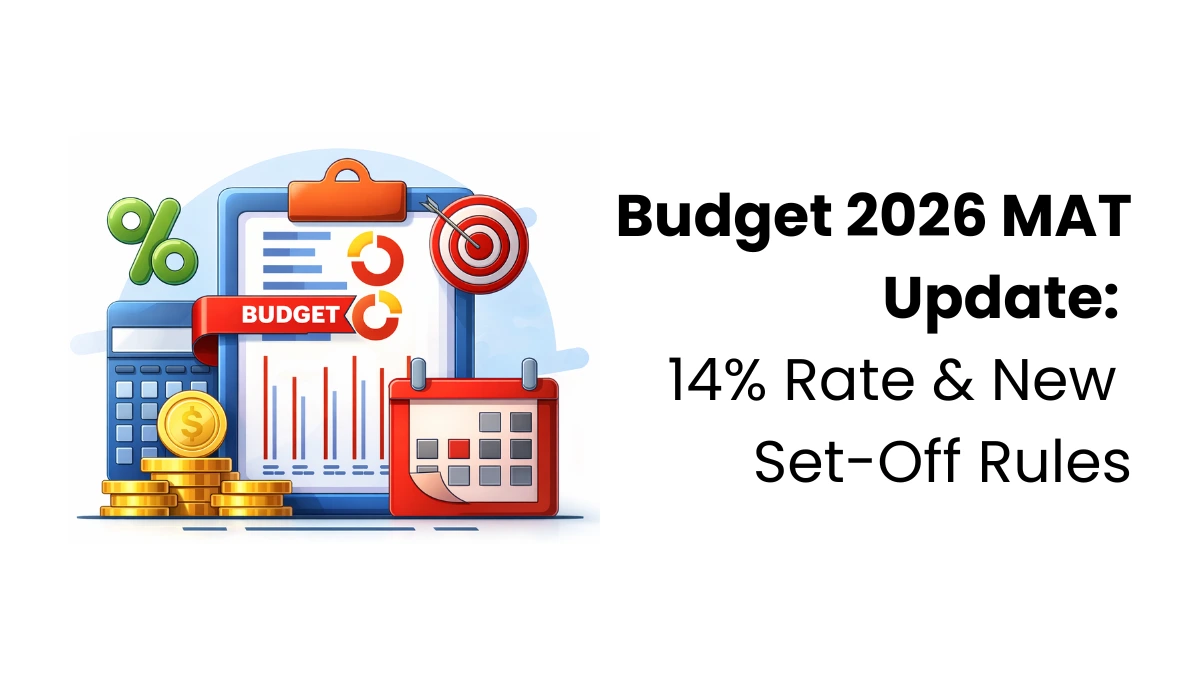An accountant plays an important role in ensuring the financial stability and long-term success of any business. With accurate and efficient accounting, business leaders gain the clarity they need to perform different processes such as making informed decisions, managing risks, remaining compliant, and driving stronger financial performance. So accounting is an important part that provides the guiding strategy, evaluates risk, and supports future growth. In this blog, we explore some of the essential critical areas accountants must monitor and explain why each is critical to maintaining both short-term operations and long-term financial success.
Top 10 Aspects to be Strictly Monitored by an Accountant
Cash Flow Management
Any business is sustained by cash flow. The flow and movement of money in and out of the organisation should be regularly checked by the accountants to ensure that the organisation is operating and fulfilling its strategic and operational requirements. Cash moments have to be described, reconciled, and analysed daily for sales, monthly rent, and salaries, among others.
Why It Matters:
Without management, a profitable business may experience cash shortages. Being very careful to monitor the cash flow assists in ensuring that payment of bills is made in time, thus enabling shortfalls to be identified in advance to a point where they are seen to cause a problem.
Key Tasks:
- Regularly prepare a weekly or monthly cash flow forecast.
- Keep an eye out for unproductive expenses and work to reduce them.
- Maintain a reserve fund for handling unexpected costs without disrupting operations.
- Monitor actual cash movements against your forecasts to stay on track.
Use of Accounting Software
Every business should purchase or subscribe to accounting software such as QuickBooks, Tally ERP, Sage 50, SAP, etc., to track all account-related transactions right from the first business transaction. A business also needs an accountant to have a financially sound and sustainable business. Through the best accounting process, the enterprising individuals may become capable of making enlightened decisions, limiting risks, ensuring that they are compliant and releasing high financial ratios. This is not just data input or bookkeeping; it is accounting at the heart of the gearing of strategy, quantifying the risk and enabling growth in the future.
Why It Matters:
Manual work is prone to errors and can cause delays. Accounting software not only automates repetitive work but also includes ready checks, audit trails, and report-generating tools.
Key Tasks:
- Select a suitable software based on business size and complexity.
- Make sure that the ledgers and chart of accounts are set up correctly.
- Training the team members to use the platform more effectively.
- Regularly update software and back up data securely.
Tax Calculations and Compliance
One of the most important aspects to be strictly monitored by an accountant is legal and tax compliance. This includes adhering to the latest tax legislation, filing accurate returns, and maintaining updated documentation for audits. Inaccurate filing or missing deadlines can expose a company to penalties or legal disputes, harming both its finances and reputation. Accountants must maintain an ongoing awareness of changing tax laws, understand regional differences in tax structure (such as GST or VAT), and automate tasks using accounting software like SAP FICO. Proactive tax management strengthens financial planning and ensures a stable future.
Why It Matters:
Both tax calculation errors and calculation errors in general may result in severe losses in various forms, as well as a loss of the reputation of businesses. A proper tax record is also helpful in financial planning and budgeting.
Key Tasks:
- Stay updated on current tax laws and rates.
- Calculate taxes due with supporting documentation.
- Ensure timely payment and filing of returns.
- Maintain records for audits and verifications.
Statutory Compliance Calendar
Each and every business has to meet a number of legal deadlines- Monthly GST returns, annual ROC, Quarterly TDS payments, etc. Having and adhering to a statutory calendar will not leave anything behind.
Why It Matters:
Late delivery may lead to loss of money and compliance issues. Good governance and transparency are assured with a well-maintained calendar of compliance.
Key Tasks:
- Maintain a due date chart for all required filings.
- Schedule reminders for critical dates.
- Prepare the required documents in advance.
- Cross-verify submitted data with accounting records.
Daily Expense Tracking
Even when routine charges are minimal, they accumulate with time. These must be classified, documented and checked on occasion. Uncontrolled costs are capable of directing the budget to excess and influencing profitability.
Why It Matters:
Checking the day-to-day business expenses guarantees enhanced management of the working capital. The information about money expended helps in taking rectification where it is needed.
Key Tasks:
- Monitor day-to-day business expenses.
- Categorise expenses as per business functions.
- Flag high or unexpected costs.
- Compare expense trends month-on-month.

Classification of Expenses
A good categorisation of costs as direct costs, indirect costs, fixed costs, as well as variable costs, assists in financial reporting and analysis. It also helps in cost control, pricing, and budgeting.
Why It Matters:
Appropriate grouping signifies that financial statements are an accurate portrayal of the real performance of each department or process.
Key Tasks:
- Create clear guidelines for expense categorisation.
- Tag each transaction correctly.
- Align classifications with financial reporting requirements.
- Periodically review for misclassified entries.
Fixed Asset Management
Capital, such as machines and building equipment, needs to be documented and traced. The right records need to be taken on the depreciation, maintenance schedules, and disposals.
Why it Matters:
Tracking the wrong asset can result in a financial misstatement, which affects investment decision-making. Depreciation influences both the determination of profit and the tax.
Key Tasks:
- Maintain an asset register.
- Compute depreciation according to legal directions.
- Record additions and disposals promptly.
- Conduct regular physical verification.
Provision for Bad Debts
They should also check accounts receivable frequently to know the overdue payments. The forecasting of doubtful debts is done to make reporting more realistic and to make the business ready in case of write-offs.
Why It Matters:
Failure to write off overdue receivables may be a cause of overstating income. On-time provisions give a better account of financial health.
Key Tasks:
- Age receivables and flag delays.
- Set thresholds for provisioning.
- Communicate with customers for recovery.
- Adjust entries based on outcomes.
Payroll and Employee Compensation
Employee salaries, bonuses, and deductions must be calculated with accuracy and compliance. This includes statutory contributions and tax withholding.
Why It Matters:
Payroll errors can lead to employee dissatisfaction and regulatory trouble. Well-managed payroll builds trust and ensures statutory compliance.
Key Tasks:
- Calculate monthly salaries with allowances and deductions.
- Process payroll on schedule.
- File relevant returns (PF, ESI, TDS).
- Maintain confidentiality and secure records.
Communication with Management
Among the most strategic duties of an accountant is the ability to communicate important financial knowledge to the top management. This is comprised of cash flow projections, taxes payable, risk warnings, and budget performance projections.
Why It Matters:
Communication makes the right decisions. It also aims at changing an accountant into a strategic advisor, who is not a servant of the records anymore.
Key Tasks:
- Summarise and report key financial metrics.
- Recommend cost-saving or risk-reduction measures.
- Present findings in simple and actionable terms.
- Ensure transparency in all financial updates.
Conclusion
Whether it is keeping the flow of cash running or balancing the tax, accountants bear a multiplicity of responsibilities as far as the success of a business is concerned. These are not ordinary chores- they are the foundation of governance, efficiency and growth.
The aspects to be strictly monitored by an accountant include cash flow, tax compliance, and financial reporting, all of which play a crucial role in improving compliance levels, enabling sound decision-making, and ensuring the sustainability of financial stability. A good accounting department does not cost the business anything; it is a very important investment toward its future. These critical areas accountants must monitor are not just financial checklists—they are the cornerstones of business success.










